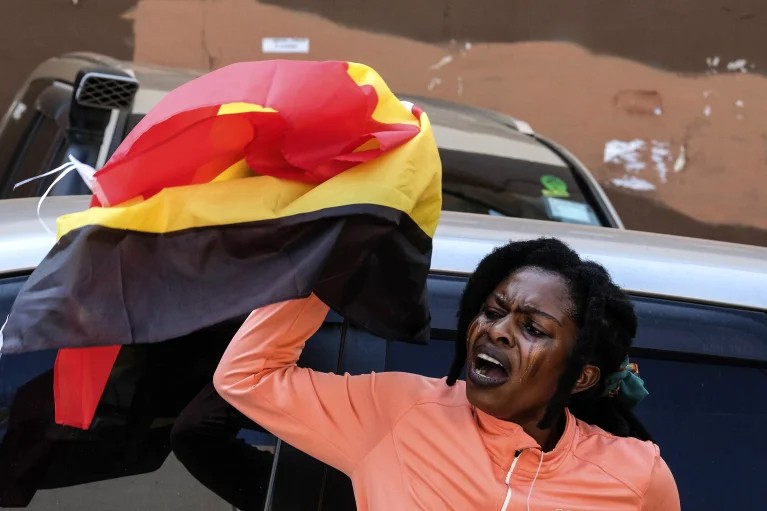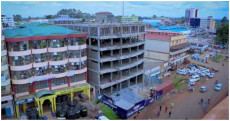- Uganda witnessed anti-corruption demonstrations for the better part of Tuesday July 23, 2024 as protesters took to the streets in a movement mirroring that of Kenya and Bangladesh.
- President Yoweri Museveni had issued a warning prior to Tuesday’s protests, warning protesters to not ‘play with fire’.
- Despite being denied permission to carry on with the protests by police, Ugandan youths took to the streets in a display of defiance.
- Heavy deployment of forces was witnessed in Kampala with majority of protesters being beaten up and arrested.
Uganda witnessed anti-corruption demonstrations for the better part of Tuesday July 23, 2024 as protesters took to the streets in a movement mirroring that of Kenya and Bangladesh.
Uganda’s president Yoweri Museveni had issued a warning before Tuesday’s protests, warning the protesters not to ‘play with fire’. However, Ugandans decided to cuddle the fire and see the outcome.
Young Ugandans went out despite being denied permission by the police to carry on with the protests, with the police terming it as ‘threatening the peace and security of Uganda’.
On the eve of the march, Robert Kyagulanyi, famously known as Bobby Wine, attested to the deployment of heavy security forces in the Kampala headquarters of his National Unity Platform Party (NUP).
He also narrated the violent arrest of his party officials after his office was turned into a military barrack. Other protesters were seen being mishandled by police while dozens got arrested immediately. Some of those arrested are lawyer Eriah Nuwenuwe and media personality Faiza Fabz.
Read More
Writing on X, he said: "Salutations to all who have courageously marched and are still marching against corruption and misrule - even in the face of very brutal actions by the military and police. The cowards have been picking up young people whose only crime is lifting a placard."
Bobby Wine is the current standing opposition of Yoweri Museveni, as his efforts for change have hit many pushbacks following several detentions.
Young Ugandans organized the march on social media to demand an end to corruption involving several high-profile officials in the country.
Uganda’s parliamentary speaker, Anita Among, has been in the limelight, with mounting allegations of corruption and irregular expenditures against her. She refused to heed the call for her resignation after an online expose.
The US and the UK sanctioned Anita and three ministers early this year over alleged corruption, but they later denied the accusations.
Pictures showed protesters holding signs that read "Stop corruption" and calling the parliament a "den of thieves".
President Museveni has been in power in Uganda since 1984. During his re-election in 2021, he assured Ugandans that he would deal with corruption and clean the country.
Uganda's decision to hit the road shows a shift in the political landscape and democracy in African countries since independence. Kenya has had a hard political moment following pressure and protests last month that led to the withdrawal of the Finance Bill 2024 and the dissolution of the cabinet by President William Ruto.
Will the efforts by Uganda lead to a meaningful change, or will it hit a snag?












